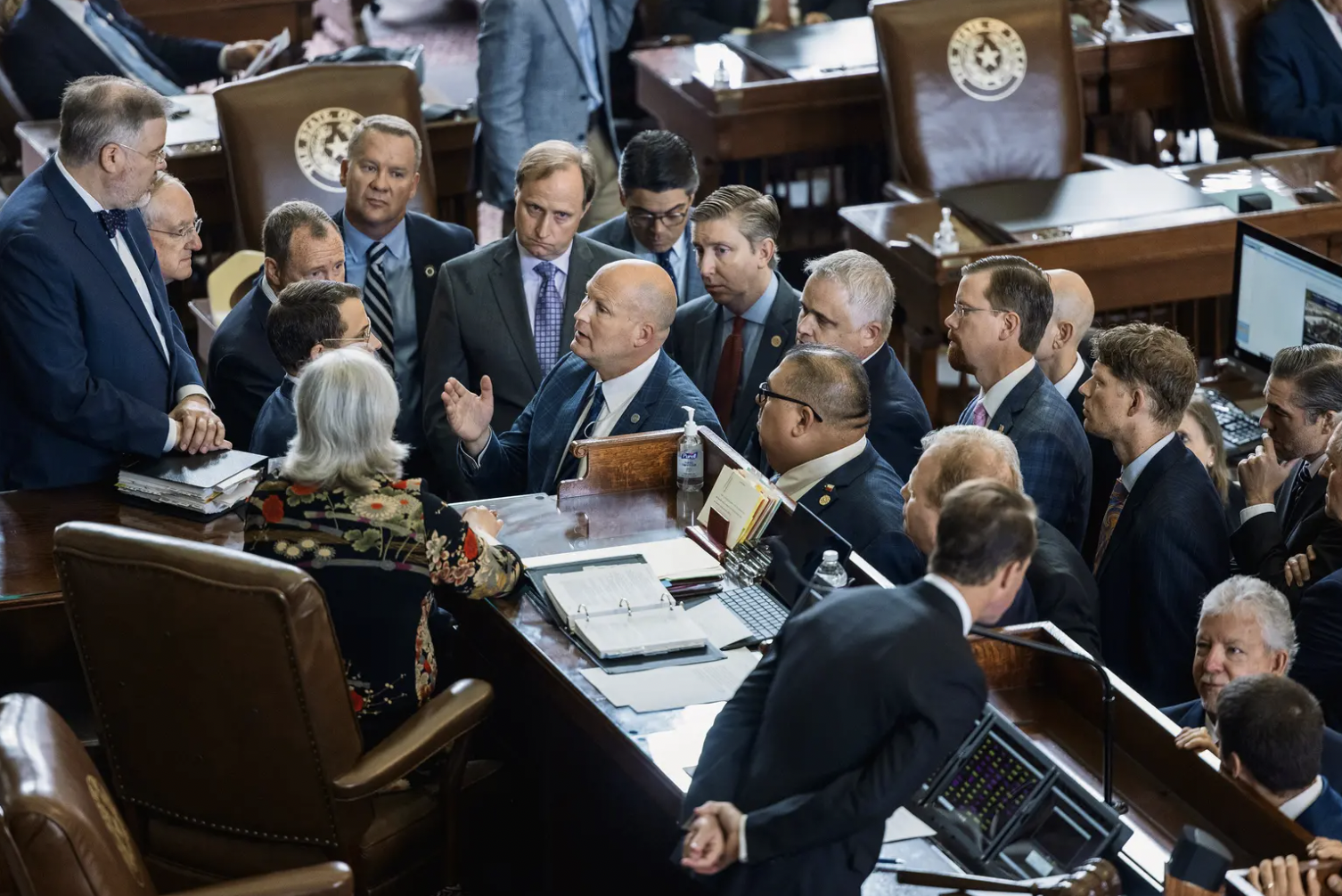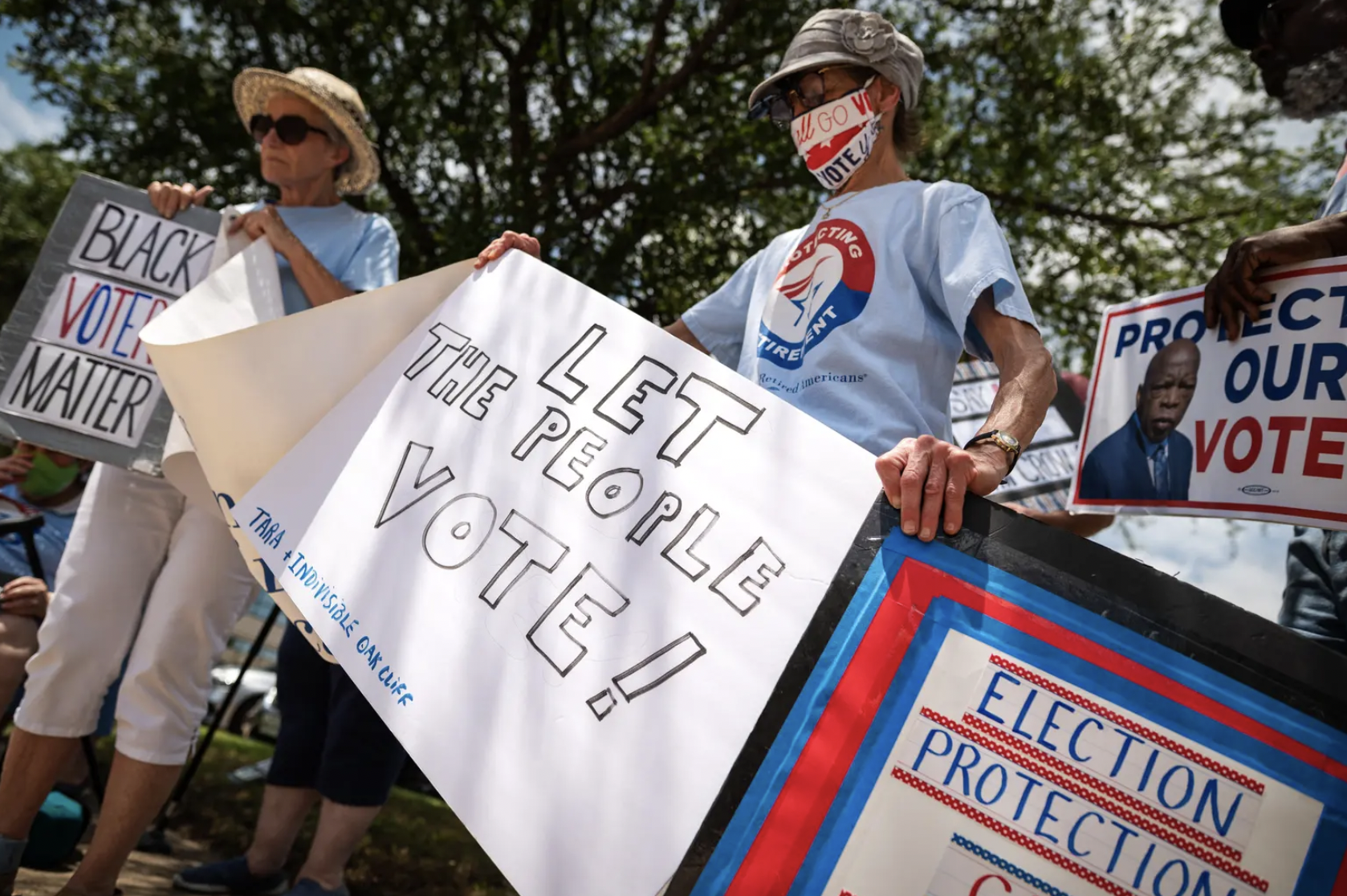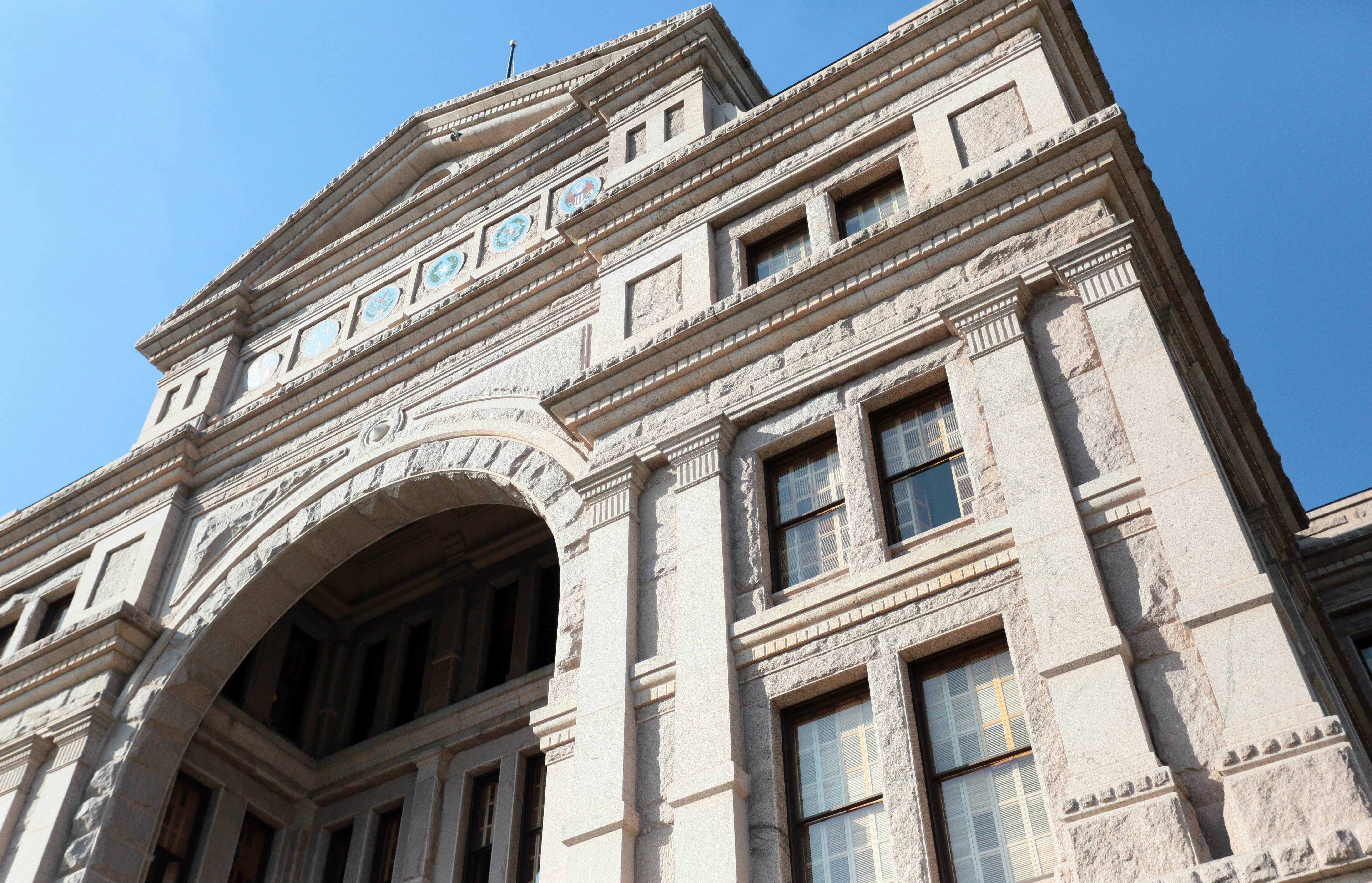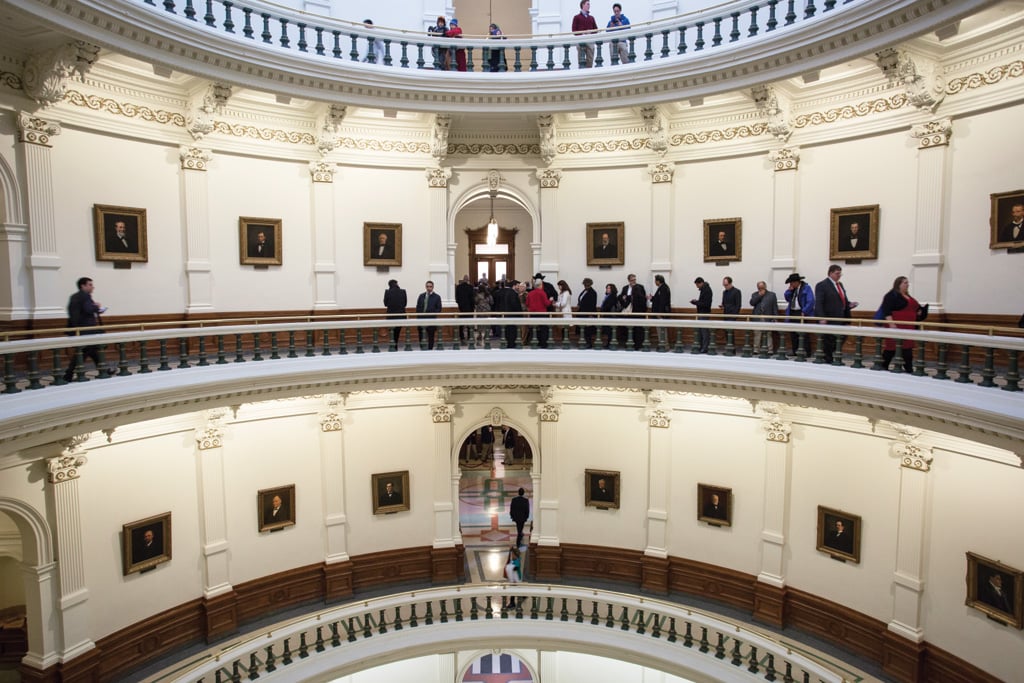
The Lege This Week: Stimmy for Schools?
The Texas Senate passes its budget bill without addressing billions of dollars in unspent federal relief. Now, public education advocates are demanding that lawmakers open up the spigot for local school districts.

Welcome to the 87th Legislative Session. Since the last session came to a close in June 2019, Texas has been hit by an unrestrained pandemic and a crippling economic crisis—and now the fallout from deadly blackouts. Under unprecedented circumstances, lawmakers are faced with a number of urgent challenges. The Texas Observer is following along every step of the way.
Go here for last week’s dispatch from the state Capitol.
What We’re Following:
Budget battles and federal aid
The Texas Senate unanimously passed its budget bill, Senate Bill 1, which maintains the Legislature’s commitment to boost state spending on public schools and property tax relief—a top priority in the 2019 session. The budget also commits nearly $800 million to the state’s border security forces, and about $8 billion for mental health programs. Beyond that, the bill includes substantial belt-tightening for other government services and agencies—a response to Governor Greg Abbott’s call last year for 5 percent budget cuts for most parts of the state government. Still, the budget largely avoids catastrophic cuts that many feared were coming after the pandemic threw the state’s finances into chaos.
“My worst-case scenario would’ve been a repeat of 2011,” said state Senator Eddie Lucio, Jr., D-Brownsville, referring to when the Legislature cut $5.4 billion from the budget. “It was my dearest hope that we would not have to enact another cut so devastating 10 years later with the budget. I am pleased that we did not do so.” The state House is still working on its budget, though it’s likely to come up with a similar version.
But one thing that the Senate budget does not address is the question of what to do with the heaps of federal stimulus aid on its way to Texas. Over the past year, most states have used federal relief money to help local schools cover the added costs of the pandemic—including things like personal protective equipment and digital learning tools. But in Texas, public schools haven’t seen any of that money. Last year, lawmakers used nearly $2 billion from the state’s education share of the federal relief package and instead used it to plug holes elsewhere in the budget.
Public education advocates and local school district leaders are now worried that state leaders could try to do the same thing this year with about $18 billion in federal funds.
he House is considering legislation that would essentially hand over control of that federal money to a select committee co-chaired by Lieutenant Governor Dan Patrick and House Speaker Dade Phelan, if the Legislature doesn’t allocate the money during the regular session. The bill was discussed Thursday before the House Appropriations Committee, where it drew much consternation from lawmakers. Many raised concerns about a committee controlling how the state will spend billions in federal funds, and voiced support for a special session so the full Legislature can decide.
“Government 101 is that the legislative branch has power over the purse,” said state Representative Matt Shaefer, a member of the conservative House Freedom Caucus.
What We’re Reading:

Texas House Elections Committee advances “election integrity” bill
On a party-line vote, Republican committee members voted in favor of House Bill 6, which would, among other things, further criminalize violations of state election code—including making it a felony for election officials to send mail ballot applications to a voter who didn’t request one. This comes a week after the Senate passed their own legislation—SB7—last week that restricts state election laws. / Texas Tribune
New Texas bill aims to protect trucking companies from legal action following crashes
The state’s trucking industry—in tandem with powerful lawsuit reform groups—is pushing a bill in the House that would create a legal shield for trucking companies in the aftermath of a wreck. Texas has the most highway truck accidents in the country. Critics warn that the bill—which would make it harder for crash victims to seek legal action—would only make matters worse. / CBS DFW
The number of reported maternal deaths has increased nationwide in recent decades. Health experts and advocates say giving low-income moms Medicaid coverage for a year after delivery, rather than two months, could save lives. / Texas Tribune
The Williamson County Democrat is pushing a bill that would establish state caps on the cost of insulin, which has become exorbitantly expensive as the three drug companies that control production raise the price. Republican state Senator Lois Kolkhorst has introduced a similar bill in the upper chamber. / KVUE
3 years ago I almost slipped into a coma and died. I was diagnosed with type 1 diabetes.
I paid $684 for my first 30-day supply of insulin. Some pay $1000+ a month. Many die without it.
Today I introduced legislation to cap the price of insulin at $50 a month. #txlege pic.twitter.com/NEVrozVJwf
— James Talarico (@jamestalarico) April 6, 2021
All Hat, No Cattle
The Texas Legislature is known for its outlandish members, ludicrous antics, and right-wing flare-ups. Here’s your weekly dose.
Somehow, the state’s esteemed lieutenant governor made it this far in the legislative session without earning this honorific. No longer. This week, Dan Patrick lashed out at Corporate America, the media, and Democrats alike for criticizing the Texas Senate’s passage of SB 7, a sweeping omnibus “election integrity” package.
“Senate Bill 7 is about voter security, not about voter suppression,” Patrick said. “I’m tired of the lies and the nest of liars who continue to repeat them.” He accused the bill’s opponents of “race baiting,” according to the Dallas Morning News. Voting rights advocates and Democratic groups have called the measure “Jim Crow 2.0.”
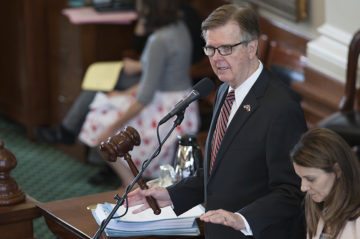
Patrick, who has long been among the state’s leading voter-fraud fearmongers, insisted that the measure would do nothing to change mail ballots, early voting hours, or Election Day rules. “Anyone who says different is lying to you, whether they write with a pen, talk with a microphone, or hold political office,” he claimed. However, critics say the bill directly targets moves made by Harris County election administrators in 2020 to expand voting access during the pandemic, and would result in fewer polling locations in communities of color. Critics also say it would empower partisan poll watchers to intimidate voters.
Patrick took particular umbrage with American Airlines, which publicly denounced the bill. The lieutenant governor said he got a call from the airline’s government relations staffer who alerted him of the company’s opposition, adding that it “was not personal.”
“Well let me tell you what, Mr. American Airlines, I take it personally,” Patrick said. “You’re questioning my integrity, and the integrity of the governor, and the integrity of the 18 Republicans who voted for this. When you suggest that we’re trying to suppress the vote, you are in essence, between the lines calling us racist, and that will not stand.”
Meanwhile suburban Harris County Republicans are already drawing up plans for “courageous” volunteers to go root out voter fraud in communities of color in Houston.
